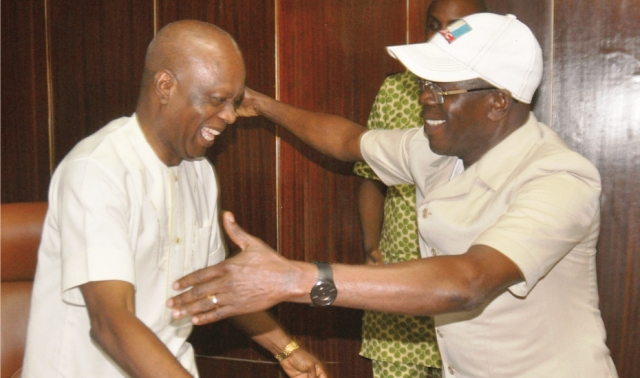Niger Delta
N850bn NDDC Funding Deficit Hampers Dev

The Niger Delta Develop
ment Commission (NDDC) has expressed concern that the N850billion Federal Government’s funding deficit was slowing down the impact of the commission on the people of the region.
Disclosing this in a welcome address at the official inauguration of the Rivers State Office of the commission on Olu Obasanjo Road in Port Harcourt, yesterday, the Director, NDDC, Rivers State Office, Benson Udo-Asubop, said that the Federal Government’s inability to release the backlog of funding deficits was responsible for the poor performance of the commission in certain developmental indices, and called for urgent action to remedy the situation.
The commission also regretted that it has yet to receive any money from the Ecological Fund while irregular payments by oil companies and other contributors have negatively affected the operations of the development agency.
While promising to pay contractors its debt of N450 billion, the commission noted that the payment would depend on the quick response of government and other financial contributors to its coffers.
Acting Managing Director of the commission, Ibim Semenitari, the inauguration of the edifice was a testimony to what the people of the region can achieve if they work together in unity, saying that the feat would enable to commission exit rented apartments for staff and save huge resources expended on rents.
Semenitari noted that the project, which commenced in May 2014 following the demolition of the old structure in March of the same year, contains four floors with a total area of 2.755m2 provided for office accommodation and a basement floor of 670m2 for archiving and parking.
The acting managing director explained that the first to third floors provide offices for directors, deputy directors, assistant directors, managers and other staff, including provisions for state representative and state director, adding that 120 staff already have office accommodation within the complex.
Noting that CCTV cameras have been installed at strategic locations within and outside the building to capture all activities around the vicinity, Semenitari said that all necessary national building requirements were met and modern facilities provided for such huge edifice.
She added that the complex includes a large reception, conference hall for 250 persons, staff canteen, sick bay, and offices for drivers, all on the ground floor.
Also speaking, the Rivers State Governor, Chief Nyesom Wike charged the management of the commission to work closely with the government to meet the yawning needs of the people of the state, especially the youth.
Represented by Special Adviser on NNDC Affairs, Barrister Aribitonye Okiri, the governor stated that the state government does not play politics with the development of the state, and has done everything within available resources to meet the needs of the people of the state.
According to him, “we believe that collectively, we have a duty to create wealth in order to reduce poverty and bring good life to the people of Rivers State,” just as he further challenged NDDC to seek collaboration with the state government in efforts to improve the livelihoods of the people of the state.
He insisted that NDDC must brace up and do the needful by ensuring that it provides employment opportunities for Rivers people on grade level 1-6, saying that such action would help reduce unemployment burden, ensure peace and reduce poverty while also toning down crime rate in the state.
Meanwhile, the commission has said that the multi-billion naira Ogbia-Nembe Road in Bayelsa State will be inaugurated later this month to drive development in that part of the region.
The commission also confirmed that for the first time, the quarterly report of NDDC has been forwarded to the Presidency as provided for in the extant law establishing the development agency.
Among other issues, the commission further pointed out that it now hold regular management meetings while processes for the award of contracts and payment of contractors have become transparent.
Susan Serekara-Nwikhana
Niger Delta
NPC Unveils Digital Registration System In Delta

Niger Delta
Police Uncover Suspects’ Armoury … Recover Weapons In Delta

Niger Delta
Police Caution On Lawless Protests On Court Matters In A’Ibom

-
Maritime3 days ago
Nigeria To Pilot Regional Fishing Vessels Register In Gulf Of Guinea —Oyetola
-

 Sports3 days ago
Sports3 days agoGombe-Gara Rejects Chelle $130,000 monthly salary
-
Maritime3 days ago
Customs Declares War Against Narcotics Baron At Idiroko Border
-
Maritime3 days ago
NIMASA,NAF Boost Unmanned Aerial Surveillance For Maritime Security
-

 Sports3 days ago
Sports3 days agoTEAM RIVERS SET TO WIN 4×400 ” MORROW” …Wins Triple jump Silver
-

 Sports3 days ago
Sports3 days agoNPFL Drops To 91st In Global League Rankings
-
Maritime3 days ago
NIWA Collaborates ICPC TO Strengthen Integrity, Revenue
-

 Sports3 days ago
Sports3 days agoNPFL Impose Fines On Kwara United Over Fans Misconduct

